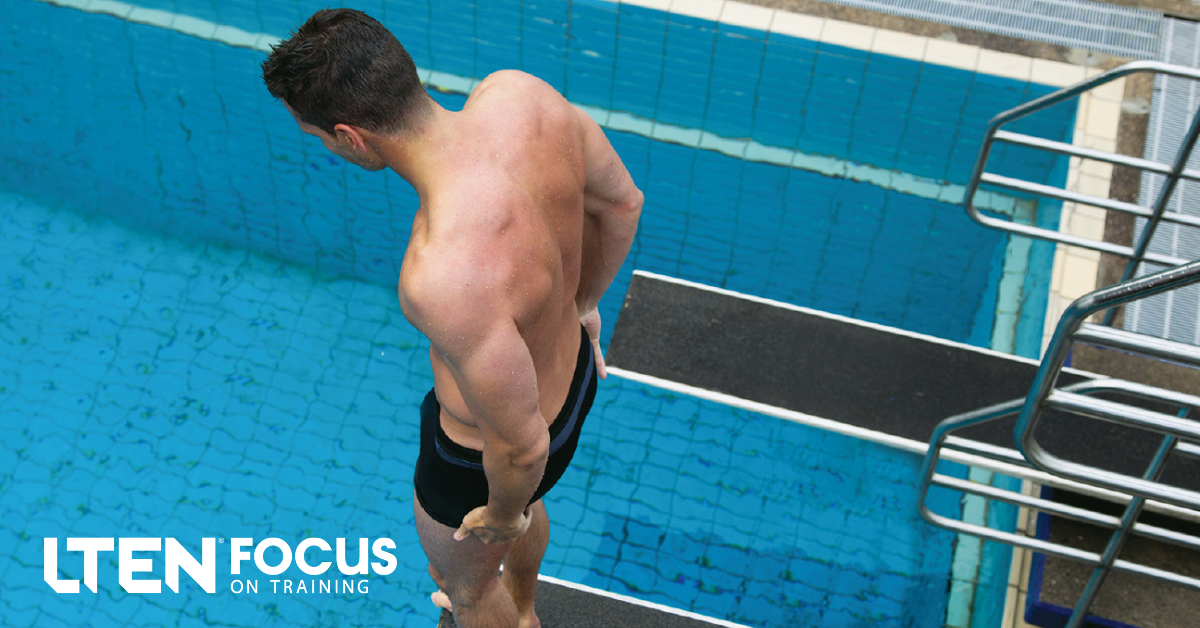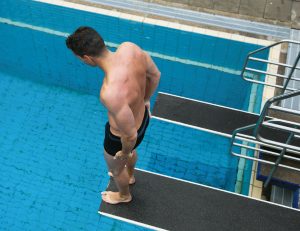
Selling Skills – By Troy Prehar
Overcome obstacles with peak performance
 My hands clutched my chest and my heart thumped with such force I feared the vibration would toss me off the diving platform. I was still out of breath having just climbed 10 meters and endured the berating of the physical education instructors, with their reminders that if I failed to jump I would not graduate West Point.
My hands clutched my chest and my heart thumped with such force I feared the vibration would toss me off the diving platform. I was still out of breath having just climbed 10 meters and endured the berating of the physical education instructors, with their reminders that if I failed to jump I would not graduate West Point.
But this time would be different. Rather than turn and shamefully climb back down the ladder, I confidently stepped to the edge and off the diving platform.
All my life I have lived with a terrible fear of heights, and as a young cadet at West Point, I knew I had a date with my fears and the graduation requirement of jumping from the 10-meter board. I attempted several approaches to mitigate my fears, from building confidence with smaller diving boards to reading self-help books —all of which failed to give me the confidence to step off that ledge.
What would ultimately work for me was applying some novel training in sports psychology, which was being pioneered at West Point at that time.
Performance Improvement
Sports psychology was a new field of study in the early 1990s, and I happened to be exposed to it as a player in the Army football program. Cognitive peak performance training was used to improve our execution in individual position skills.
As an example, to overcome my bad footwork in my blocking, the trainers would work with me to visualize the proper techniques (steps) and couple this with various forms of cognitive reinforcement. These visualization exercises were part of a larger curriculum that included self mastery, focus and stress-management exercises, all tracked using the latest in biofeedback.
This training helped me become much more consistent in my blocking technique on the football field, and I soon realized I could apply these concepts to other situations in life.
I couldn’t believe the difference when I first attempted to jump off the 10-meterboard following this training. While I still had significant concerns, my body reacted totally differently. My heart rate was much slower, and my sweaty palms were gone.
Atop the platform, rather than fearing the short walk to the edge, it all felt so familiar and common. Stepping off was almost automatic and upon my surfacing from the water, I looked back up at the platform and realized what I had accomplished through this training.
Take the Dive
At this point, you are probably thinking, “nice story, what does this have to do with LTEN and training?” Simply that I believe we can improve the performance of our teams by including peak performance in our programs.
After learning to overcome my fear of heights, I realized I could apply this same approach to any situation where I had fears or lacked some degree of confidence.
My first time using these skills was as a young salesperson in New York City, fresh out of the military. There I was able to overcome my fears about transitioning into sales and build confidence in front of customers — eventually earning Presidents Club and Rookie of the Year, while being promoted to management my second year.
Conclusion
Today, peak performance training and coaching is used in many industries, including professional sports (think about what you see the kicker do before a big kick or a pitcher facing a 3-2 count) and the U.S. military (it’s required training for SEALs and many other special forces roles).
I would encourage you to consider this training philosophy. Let your teams build the skills they need to overcome any obstacle.
 Troy Prehar is senior director, health systems training – North America, for Philips Healthcare. Email Troy at troy.prehar@philips.com or connect with him on LinkedIn at www.linkedin.com/in/tprehar/ .
Troy Prehar is senior director, health systems training – North America, for Philips Healthcare. Email Troy at troy.prehar@philips.com or connect with him on LinkedIn at www.linkedin.com/in/tprehar/ .








